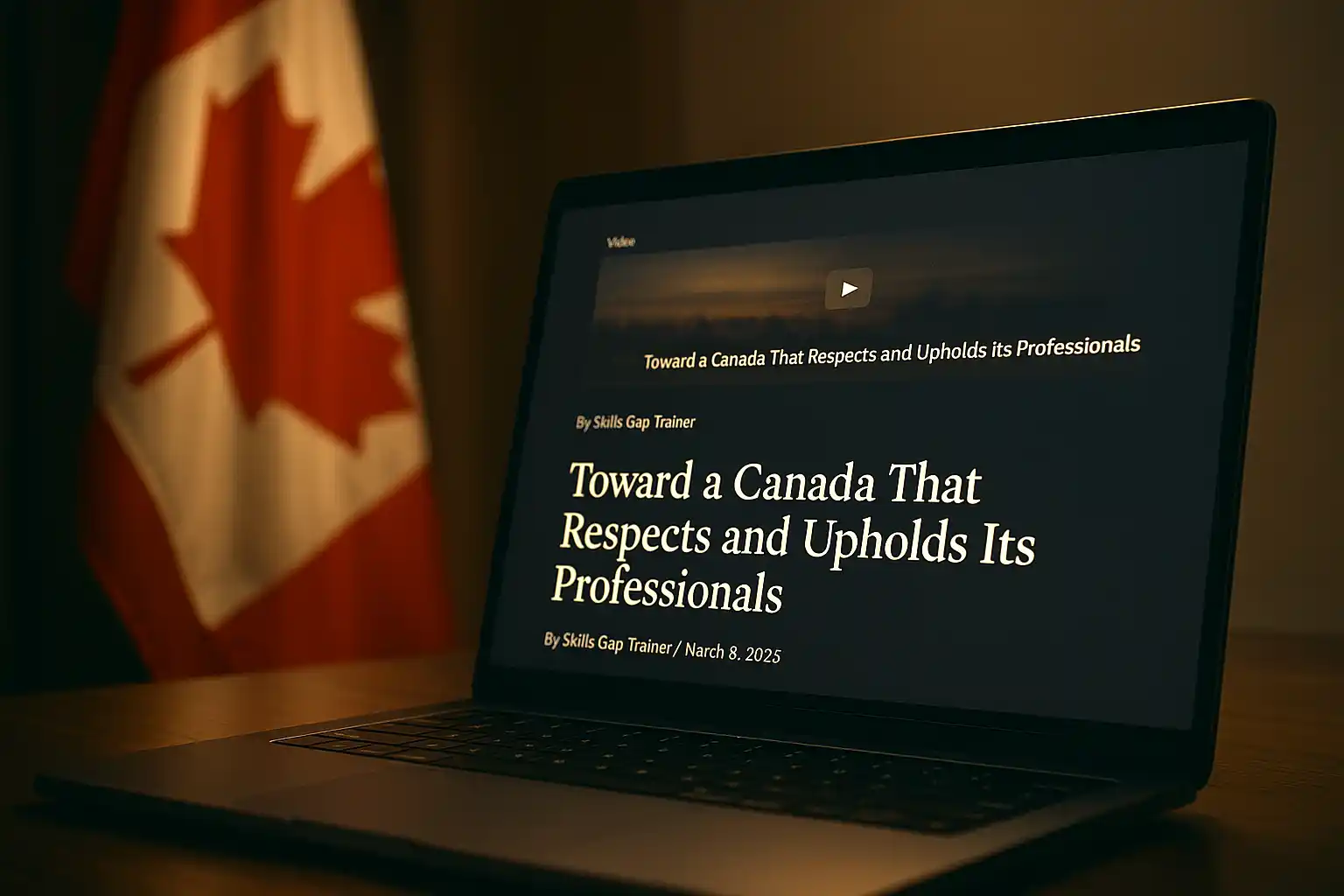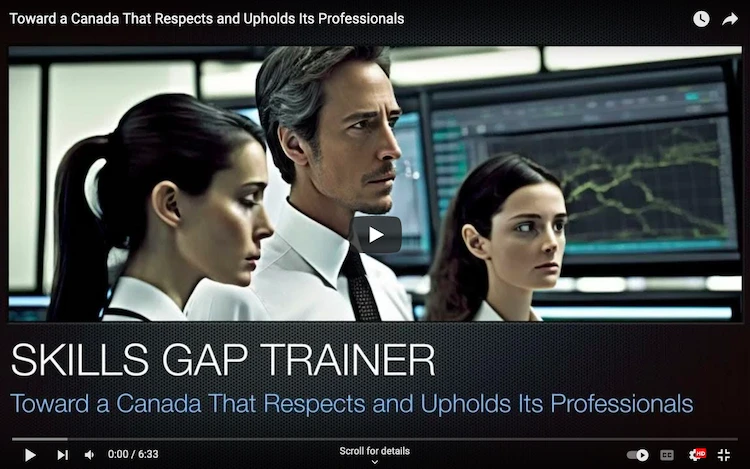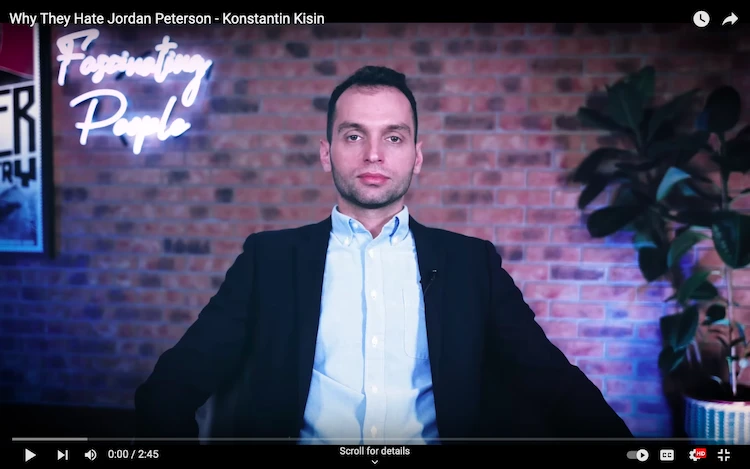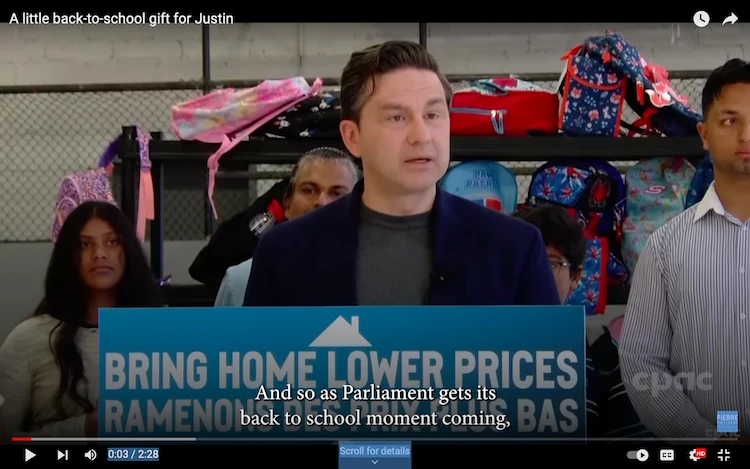Video: Toward a Canada That Respects and Upholds Its Professionals
YouTube Link: https://youtu.be/xA1UHtF8iEU
Video: Why They Hate Jordan Peterson – Konstantin Kisin
YouTube Link: https://youtu.be/DJW-O8vLvc4?si=dComOVDB2yy95Vzd [ Video on Triggernometry YouTube channel, titled “Why They Hate Jordan Peterson – Konstantin Kisin” ] @skillsgaptrainer “Dear Konstantin,
- We’re appreciative of your thorough analysis on the challenges faced by Dr. Jordan Peterson. Your investigative journalism stands as a beacon, shedding light on multifaceted issues.
- Your insights into Dr. Peterson’s case have resonated profoundly. Through your revelations, we see a ripple effect: hopefully, some professionals across various disciplines in Canada are spurred to evaluate the legislative changes governing their fields. Especially in the last decade, the legislative shifts beg the question: are professionals’ unique and distinct standings enhanced or undermined? The clarity on whether professionals are better off self-regulated or under tighter state control has become blurred, causing unease about the future of professional regulation developments in Canada, and if the public were to be informed, the public might feel unease at the direction as well.
- Some recent evolutions in professional self-regulation societies are concerning to us, especially when projected as a new blanket system for all professions. It’s paramount for professionals to introspect: do these changes truly reflect their unique and distinct roles, authority, and responsibilities? Do these changes still ensure they have a voice in society? and are still capable to hold government to account? An open, collaborative approach, a public debate, involving professionals regarding their regulators, would surely be preferable over decisions taken in secretive governmental corners to transform the nature of professional regulation for all working professionals of society. Imagine if you were the host of such an online public discourse. There is no one better for this task.
- Konstantin, your astute approach to these pressing subjects is commendable. We earnestly hope you maintain this trajectory, potentially championing the essence of our diverse professional classes. With your continued focus, there’s hope in preserving and developing further the fundamental tenets of our professions: “professional standing”, “professional license”, “professional rings”, “professional oaths”, “unique and distinct professional legislation”, and the broad “professional authority”, applicable to both technical and non-technical sectors. Perhaps with investigators such as you, we can maintain and develop further the concept of the “regulated professional” for one more generation and do so within a “self-governing framework” and not a “unregulated, general labour, state-governing framework”, for scientists, for engineers, for technologists, for technicians, for computer scientists, for psychologists, for doctors, for police, for architects, for everyone!
- Can you imagine what kind of Canada we would have if our computer science society was not staffed with 4 volunteers, but actually had funding from the federal government? Instead of neglecting our professionals, such as computer scientists, we could have a professionally regulated computer science field that mentored future computer scientists for a 21st century tech society of great performance. Let’s defend regulatory frameworks centered around professional designations, unique professional legislation, and professional development, rather than cancelling these special statuses.
- Can you imagine if federal or provincial government HR hired individuals using STEM degrees (which are signed by professors, a type of academic reference), and it would be considered as a valid reference, which it is? Can you imagine if federal or provincial government in Canada used National Technology Benchmarks and a long list of competency analysis, and actual work analysis, instead of their emotional impressions of whether they “feel that a stranger is ready or not in a different domains than their own” or using a “reference phone call” to a stranger they never met. Imagine if Canada one day respects the concept of the “professional”. Then we would shine as a society once again.
- In essence, we yearn for a society that truly values its professionals — not just in title, but in their unique and distinct roles, legal competencies, legal capabilities, authorities and autonomy. We advocate for a Canada that recognizes the critical distinction and uniqueness each professional brings, ensuring their roles are well-defined and protected legislatively, and perhaps then, it will matter what professionals say in the 21st century and it will not take the entire internet to back up people like Dr Jordan Peterson to make a professional statement stick.
- Thank you Konstantin.”
Video: A little back-to-school gift for Justin
YouTube Link: https://youtu.be/dDotH9rG8X8?si=CfSGVPPJOBOa1AEt [ Video on Pierre Poilievre YouTube channel, titled “A little back-to-school gift for Justin” ]
- Skills Gap Trainer comment: “Pierre, your focus on the fiscal ramifications of policy choices and the clear elucidation of the importance of economic balance is commendable. As Canadians, we understand that every decision has a cost. The inflation, the ever-rising rent, and the increasing mortgage payments affect every Canadian, and it’s time we had a government that truly comprehends and acts on these nuances.
- You mentioned the value of hard-working immigrants, doctors, nurses, and professionals. This resonates deeply with us at Skills Gap Trainer. Every day, we encounter professionals across fields whose unique and distinct roles, responsibilities, and authorities are undermined or overlooked, making them question the value of their contributions to Canadian society. We need a Canada that values its professionals not just in title, but in practice.
- While your video brings out the need for fiscal responsibility and a vision for a more prosperous Canada, we delve deeper into the professional crisis facing our nation, which undoubtedly ties into the broader economic narrative. We recently commented on a video by Konstantin Kisin discussing a similar issue concerning Dr. Jordan Peterson. If you or any viewer is interested in understanding the full spectrum of this professional quandary, you can read our detailed insight here: [Link to the Skills Gap Trainer comments relating to Konstantin Kisin’s video]
- Here’s to a better, stronger, and more prosperous Canada, where both economic and professional integrity stand firm. 🇨🇦 #BringItHome”
Related books and resources:
- “The Fifth Risk” by Michael Lewis – Explores the transition of government power and the importance of understanding and respecting professional expertise in governance.
- “Trust: The Social Virtues and The Creation of Prosperity” by Francis Fukuyama – Discusses the role of trust in professional settings and its impact on economic and societal prosperity.
- “Drive: The Surprising Truth About What Motivates Us” by Daniel H. Pink – Offers insights into motivation in professional environments, highlighting autonomy, mastery, and purpose.
- “The Ethics of Authenticity” by Charles Taylor – Explores the modern struggle between individualism and societal standards, relevant to professional identity and integrity.
- “Outliers: The Story of Success” by Malcolm Gladwell – Investigates the factors that contribute to high levels of success, including cultural, community, and professional environments.
- “The Checklist Manifesto: How to Get Things Right” by Atul Gawande – Advocates for the use of checklists in professional fields to ensure efficiency and safety.
- “The Culture Code: The Secrets of Highly Successful Groups” by Daniel Coyle – Unpacks the secrets of highly successful groups, which can be applied in professional settings for better teamwork and results.
- “Professionalism: Skills for Workplace Success” by Lydia E. Anderson and Sandra B. Bolt – Offers guidance on developing professional behaviours and ethics.
- “Bowling Alone: The Collapse and Revival of American Community” by Robert D. Putnam – Analyzes the decline in social capital and its impact on professional and community life.

To see our Donate Page, click https://skillsgaptrainer.com/donate
To see our YouTube Channel, click https://www.youtube.com/@skillsgaptrainer
To see our Instagram Channel, click https://www.instagram.com/skillsgaptrainer/
To see some of our Udemy Courses, click SGT Udemy Page
To see our YouTube Channel, click https://www.youtube.com/@skillsgaptrainer


